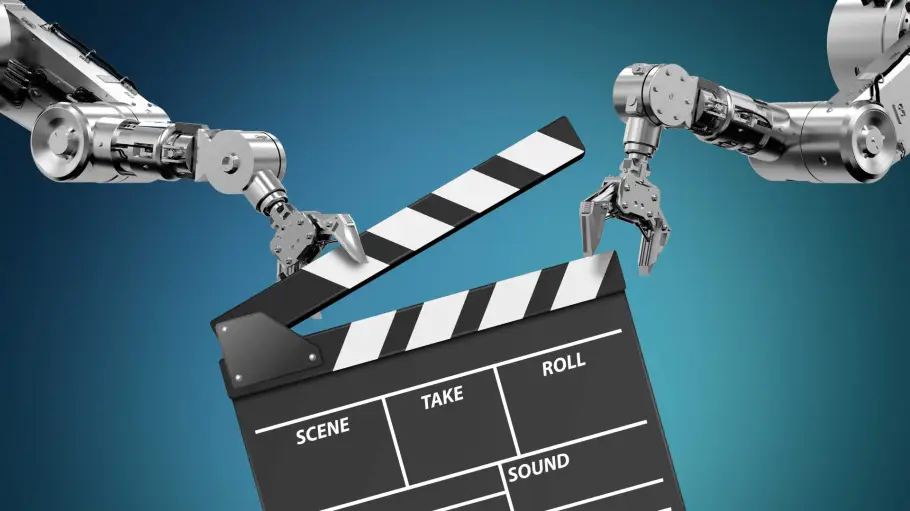In today’s rapidly evolving technological landscape, the integration of artificial intelligence (AI) into various industries has sparked debates about its potential to replace human workers.
One such industry facing this question is videography. Will AI eventually replace videographers? Let’s delve deeper into this topic and explore the possibilities.

Table Of Contents 👉
Introduction to AI in Videography
As the demand for video content continues to rise across various platforms, the need for efficient video production tools has become increasingly prominent.
In response to this demand, AI-powered solutions have emerged, offering innovative capabilities to streamline the video creation process.
From automated editing algorithms to intelligent scene recognition systems, AI is revolutionizing the way videos are produced.
Moreover, with the availability of free video editors with no watermark, individuals and businesses can now access sophisticated editing tools without incurring hefty expenses or compromising on quality.
This democratization of video editing software has paved the way for a more inclusive and diverse landscape, empowering creators of all backgrounds to unleash their creativity without constraints.
Evolution of Videography
Videography has undergone significant transformations over the years, transitioning from traditional methods to modern digital techniques. The advent of digital cameras, non-linear editing software, and online video platforms has expanded the possibilities for content creation.
However, it’s the integration of AI that has truly revolutionized the industry. AI algorithms can analyze vast amounts of data to identify trends, preferences, and patterns, enabling videographers to tailor their content to specific audiences more effectively.
Additionally, AI-driven tools can automate tedious tasks such as video editing, allowing videographers to focus more on the creative aspects of their work.
Advantages of AI in Videography
The advantages of AI in videography are manifold. One of the most significant benefits is the efficiency and speed it brings to the production process.
AI-powered algorithms can sift through hours of footage in minutes, identifying the best shots, eliminating errors, and enhancing overall quality. This not only saves time but also reduces production costs.
Furthermore, AI can assist videographers in maintaining consistency across projects by analyzing past work and applying similar styles or techniques.
Additionally, AI can help improve accessibility by automatically generating subtitles or translations for videos, making them more inclusive and reaching a wider audience.
Limitations of AI in Videography
Despite its many advantages, AI in videography also has its limitations. One of the primary challenges is its inability to replicate human creativity and intuition.
While AI can analyze data and make predictions based on patterns, it lacks the emotional understanding and artistic sensibility that human videographers bring to their work.
Moreover, AI algorithms may struggle to adapt to unique or unexpected situations, leading to suboptimal results. Additionally, there are concerns about the potential for bias in AI algorithms, which could perpetuate stereotypes or marginalize certain groups if not properly addressed.
Current State of AI in Videography
AI is already making significant strides in various aspects of videography. In filmmaking, AI-powered tools are being used to streamline pre-production tasks such as scriptwriting, storyboarding, and location scouting.
During production, AI can assist with tasks like camera tracking, lighting adjustments, and even directing actors. Post-production processes such as editing, color grading, and visual effects are also being enhanced through AI-driven automation.
Outside of the film industry, AI is being utilized in areas such as event coverage, sports broadcasting, and marketing videos, where speed and efficiency are paramount.
Challenges and Ethical Considerations
As with any emerging technology, the widespread adoption of AI in videography raises important ethical considerations. One of the primary concerns is the potential for job displacement.
While AI can automate many tasks traditionally performed by human videographers, it cannot replace the creativity, empathy, and storytelling skills they bring to their work.
There are also concerns about privacy and data security, particularly with the use of AI-powered surveillance cameras in public spaces.
Additionally, there is a risk of algorithmic bias, where AI systems may inadvertently perpetuate stereotypes or discriminate against certain groups if not properly trained or monitored.
Future Outlook
Despite these challenges, the future of AI in videography is promising. As AI technology continues to evolve, we can expect to see even greater integration into the video production process.
AI algorithms will become more sophisticated, capable of understanding context, emotions, and intent, leading to more personalized and engaging content.
Moreover, advancements in augmented reality (AR) and virtual reality (VR) technologies will further enhance the immersive experience of video content. However, it’s essential to recognize that AI should complement rather than replace human creativity.
By combining the strengths of AI with the unique insights and perspectives of human videographers, we can unlock new possibilities and push the boundaries of visual storytelling.
Conclusion
In conclusion, while AI has the potential to enhance certain aspects of videography, it is unlikely to replace videographers entirely. Human creativity, emotional intelligence, and adaptability are qualities that cannot be replicated by AI.
Instead, the future of videography is likely to involve collaboration between humans and AI, leveraging the strengths of both to create compelling visual content that resonates with audiences on a deeper level.
Related Stories:
